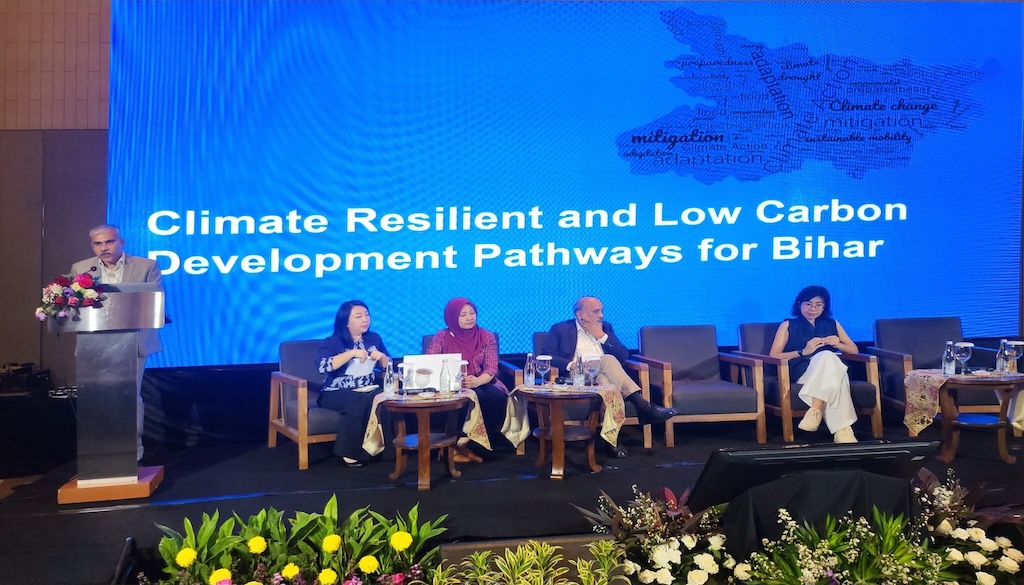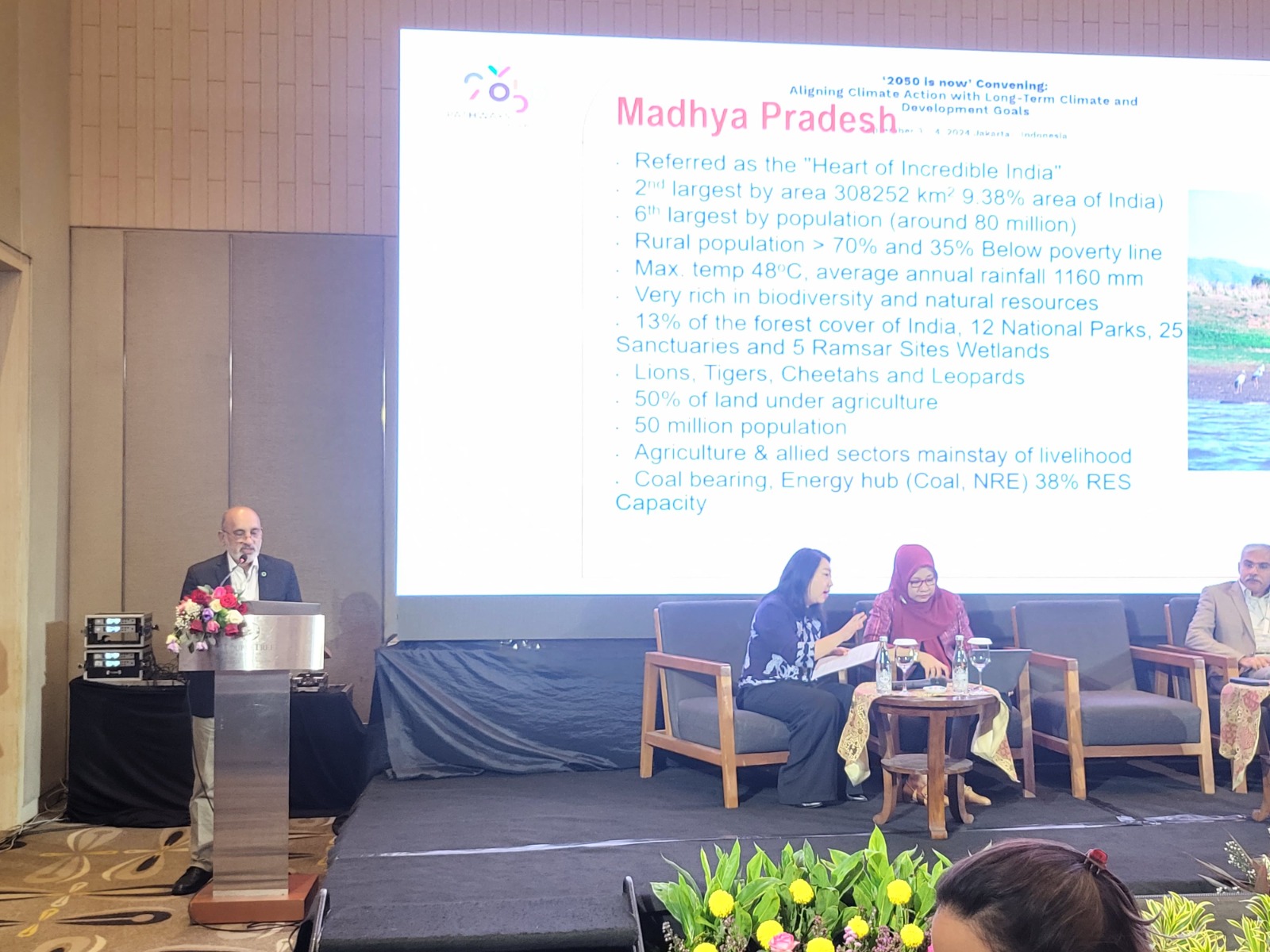Bihar’s Climate Action Initiative Receives International Praise at Jakarta Conference

Jakarta/Patna: The Bihar government’s efforts in climate action and its pursuit of carbon neutrality, particularly through the innovative initiative of the ‘Climate Resilient and Low Carbon Development Pathway for Bihar’, received praise from the international community at the International Climate Initiative (Internationale Klimaschutzinitiative)- Long Term Strategies (IKI-LTS) event in Jakarta, Indonesia, on Wednesday.
S. Chandrashekhar, Member Secretary of the Bihar State Pollution Control Board (BSPCB), highlighted the climate-resilient pathway for Bihar, the state’s first-ever Long-Term Strategy (LTS), at the two-day event titled ‘Aligning Climate with Long-Term Climate and Development Goals – IKI-LTS Regional Convening’. The event brought together national and subnational government representatives from countries in Asia and other regions, non-governmental organizations, experts, and project consortium partners.
Speaking during a session on the concluding day of the event, the BSPCB’s Member Secretary said, “Ahead of almost all major states in India and many parts of the world, the Bihar government decided to work towards long-term low-carbon development and build climate resilience for its people and its systems. Accordingly, a Memorandum of Understanding (MoU) was signed between the BSPCB and the United Nations Environment Programme (UNEP) in February 2021 to develop climate-resilient and low-carbon development pathways for the state.”
He added, “The MoU was followed by a rigorous process involving meticulous data collection from over 20 government departments, site visits to all 38 districts, around 350 meetings, and more than 30 stakeholder consultations over the last three years. This extensive exercise led to the formulation of a draft strategy report for Bihar’s climate-resilient and low-carbon development pathway, which was released by Chief Minister Shri Nitish Kumar on March 4 of this year.”
Discussing the ongoing work within the project, the BSPCB Member Secretary further mentioned the divisional-level dissemination workshops being organized across all nine administrative divisions in Bihar. “The objective of these workshops is to build the capacities of various stakeholders at the grassroots level, including government officials, parastatal agencies, academia, research institutions, civil society organizations, local NGOs, eminent subject experts, and citizen groups,” he said.
Saransh Bajpai, Associate Director of Climate, Economics and Finance (CEF) at WRI India, who also attended the IKI-LTS event in Jakarta, commented on the discussions about Bihar’s climate-resilient strategies. He said, “The discussions around the Bihar Climate Resilient and Low Carbon Development Pathway were highly enlightening and provided a platform to share approaches, challenges, and lessons learned in the formulation of the strategy with a global audience. The session delved into the critical role of subnational entities in driving climate action. Subnational work is a key part of the IKI-LTS project outcomes, and the convening was therefore a good moment to take stock of the research and activity outputs from the project by sharing experiences and lessons learned.”

Other participants from India in the session included Lokendra Thakkar, Chief Scientific Officer at the Environmental Planning & Coordination Organization (EPCO), who spoke on the recent revision of the state-level climate action plan for Madhya Pradesh and the preparation of climate action plans for cities in the state.





